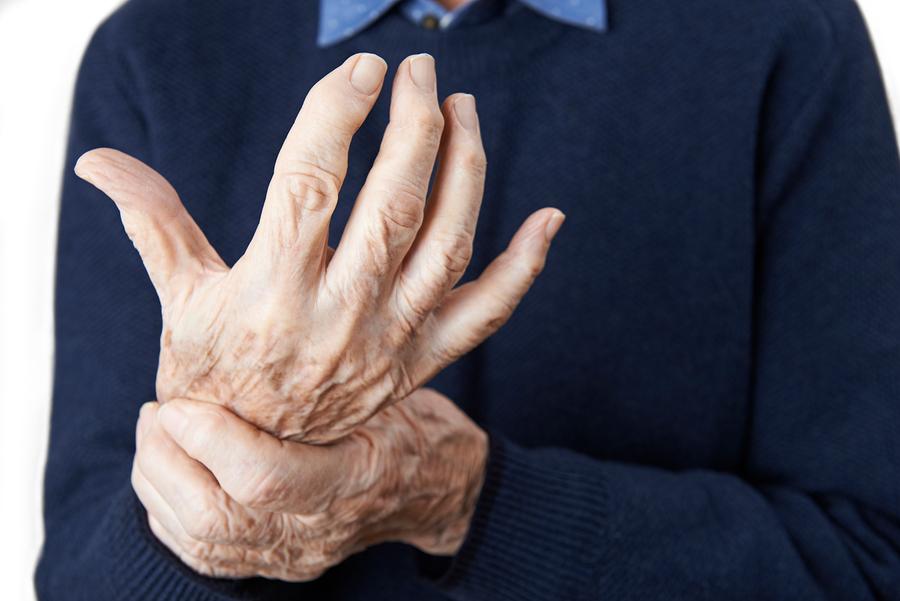Understanding the Impact of Rheumatoid Arthritis on Seniors

Companion Care at Home in Culpeper County VA
The main symptoms of rheumatoid arthritis (RA), a chronic inflammatory illness, are inflammation, pain, and stiffness in the joints. Although it can affect anyone at any age, seniors are especially vulnerable to its crippling effects. Those effects go beyond the physical consequences and disrupt the psychological and social aspects of senior’s lives as well. Knowing this, it’s essential for loved ones to work with seniors to learn all they can about the impact of this illness and how companion care at home can help. Here are a few things to know:
Understanding Rheumatoid Arthritis
Rheumatoid arthritis (RA) is a condition that arises when the body’s immune system unintentionally targets its own tissues, mainly the joints. This causes inflammation, which in turn may cause deformity and injury to those joints. The range of symptoms associated with RA is modest to severe and includes joint pain, stiffness, edema, fatigue, and limited mobility.
What Impact Does Rheumatoid Arthritis Have on Seniors?
RA can be especially difficult for seniors. Age-related changes in muscle mass and bone density, together with years of joint wear and tear, can aggravate RA symptoms and complicate treatment. Further complicating their health is the fact that many seniors are already trying to manage additional chronic ailments. This is why they need all the support they can get, from companion care at home, loved ones, and their medical team. A breakdown of RA’s impact is explored further below:
- Physical Difficulties: Seniors with RA may find it difficult to carry out everyday tasks and to remain independent due to the physical difficulties associated with the disease. Even seemingly easy tasks like dressing, cooking, and walking can become laborious chores, which can cause dissatisfaction and a sense of loss. Untreated RA can also raise the chance of fractures and falls, which is extremely dangerous for the general health of seniors.
- Emotional Strain: Seniors’ mental health may suffer as a result of living with RA. Feelings of loneliness, melancholy, and worry can result from chronic pain and restricted movement. Seniors may find it difficult to adjust to their diminished capacities and worry that they may burden their family members. It’s critical to address the emotional aspects of RA and give seniors the assistance they require in order to maintain their positivity.
- Social Impact: RA can also have a negative social impact on seniors, making it more difficult for them to interact with people and take part in activities they used to love. Due to discomfort or exhaustion, seniors may retreat from social events, which can result in feelings of isolation and loneliness. Seniors with RA must have a solid support system since it can offer emotional support and motivation during trying times.
Managing RA Symptoms
Seniors with rheumatoid arthritis (RA) can control their symptoms and enhance their quality of life with a variety of treatment options, despite the fact that RA has no known cure. To manage inflammation, reduce pain, and maintain joint function, a combination of medications, physical therapy, and lifestyle modifications may be helpful. Seniors who use assistive devices such as walkers, canes, and adaptive tools can also preserve their independence and carry out their regular activities.
Seniors with rheumatoid arthritis face particular difficulties that affect not only their physical health but also their mental and social relationships. However, with support from their loved ones, companion care at home, and their medical team, seniors may manage RA and lead happy, fulfilled lives.
Sources:
https://www.webmd.com/rheumatoid-arthritis/healthy-aging-with-rheumatoid-arthritis
https://www.cdc.gov/arthritis/types/rheumatoid-arthritis.html
https://www.pharmacytimes.com/view/2003-12-7559
If you or an aging loved one are considering companion care at home in Culpeper County, VA, please contact the caring staff at LivinRite Home Care. Serving Northern Virginia, The Valley, and Surrounding Communities – call us today at (703) 369-6677.
- 5 Things That Will Help Seniors When The Humidity Is High - July 26, 2024
- Encouraging Seniors to Embrace Face-to-Face Contact - July 10, 2024
- The Impact of Loneliness on Senior Physical and Mental Health - June 18, 2024
